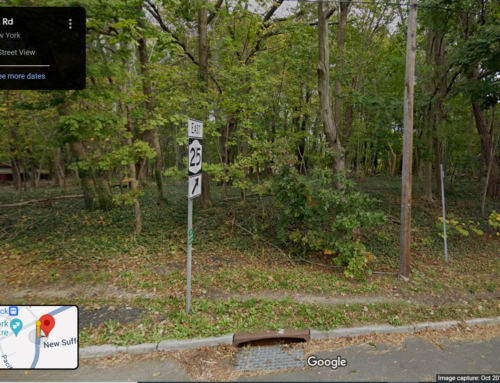 Ever since the Supreme Court decided that economic development was a “public use” for which land could be taken by eminent domain under the Fifth Amendment in the controversial case of Kelo v. City of New London, 545 U.S. 469 (2005), the landowner bar and property rights interest groups have been searching for cases to limit Kelo. One area of concentration has been on what are called pretextual takings, which are said to involve a condemnor advancing a spurious public purpose that masks its true motivation to take the land for the purpose of benefiting a private party. A land developer in Colorado who had a parcel of land taken, in what it argued was a pretextual taking, recently asked the Supreme Court of the United States to hold that the taking violated the Fifth Amendment, and thus overrule the Colorado Supreme Court’s prior ruling in Carousel Farms Metro. Dist. v. Woodcrest Homes, Inc., 442 P.3d 402 (Colo. 2019). In a blow to the landowner bar’s hopes of securing a favorable ruling on this subject, the Supreme Court declined to hear the case.
Ever since the Supreme Court decided that economic development was a “public use” for which land could be taken by eminent domain under the Fifth Amendment in the controversial case of Kelo v. City of New London, 545 U.S. 469 (2005), the landowner bar and property rights interest groups have been searching for cases to limit Kelo. One area of concentration has been on what are called pretextual takings, which are said to involve a condemnor advancing a spurious public purpose that masks its true motivation to take the land for the purpose of benefiting a private party. A land developer in Colorado who had a parcel of land taken, in what it argued was a pretextual taking, recently asked the Supreme Court of the United States to hold that the taking violated the Fifth Amendment, and thus overrule the Colorado Supreme Court’s prior ruling in Carousel Farms Metro. Dist. v. Woodcrest Homes, Inc., 442 P.3d 402 (Colo. 2019). In a blow to the landowner bar’s hopes of securing a favorable ruling on this subject, the Supreme Court declined to hear the case.
The dispute centered on a metropolitan authority’s taking of a small parcel of land totaling just over a half acre for the construction of a road and utilities for a planned residential subdivision on a pair of larger nearby tracts of land. The owner of the parcel taken was Woodcrest Homes, Inc., a developer who had purchased the lot in 2006 in the hope of also acquiring the larger tracts and developing them. However, due to the economic crisis that began the following year, Woodcrest was unable to complete its planned development. In 2012, another developer, Century Communities, bought the larger parcels with the intent to develop them in the same manner as Woodcrest had planned and have the nearby town of Parker annex the development. In pursuit of that object, Century attempted to secure the small parcel from Woodcrest. When Woodcrest refused its purchase offer, Century formed a special entity provided for under Colorado law called a metropolitan district so that it could take the parcel. Such a district is empowered to, among other things, issue bonds and exercise eminent domain for the construction of public facilities.
The district instituted condemnation proceedings to condemn the property owned by Woodcrest for the stated public purpose of constructing a roadway and making water, storm drainage, and sanitary sewer improvements that would serve the planned community. Woodcrest opposed the condemnation, arguing that the metropolitan district was a front for Century, composed entirely of Century officers and employees, and that its taking was not for a public purpose but instead for the private purpose of allowing Century’s planned housing development project to proceed. The trial court rejected Woodcrest’s argument.
The case was then appealed and ended up before the state supreme court. At that stage, the Institute for Justice, an organization based in Virginia that advocates on behalf of landowners, filed an amicus brief arguing, for the first time in the litigation, that the taking violated the Fifth Amendment as well as Colorado law. Woodcrest then adopted the same argument into its brief on appeal.
The state supreme court again rejected Woodcrest’s arguments, noting that, while the Colorado Constitution requires the land taken to be put to a “public use,” that term is flexible. All that the law requires is that the taking be “essentially for the public benefit,” meaning that a taking can result in significant benefits to private parties without running afoul of the state constitution so long as the fundamental purpose of the project is to benefit the public. It went on to hold that the taking of Woodcrest’s property met that standard despite the benefits that would flow to Century. It further held that neither Kelo nor the statute that Colorado had passed in the wake of Kelo prohibiting the use of eminent domain to transfer property to a private party changed the result in this case.
Woodcrest, now represented by attorneys with the
Institute for Justice, petitioned the Supreme Court of the United States to take up the case, arguing that the taking violated the Fifth Amendment and that there was a split of authority among the states about pretextual takings. Specifically, Woodcrest argued that a number of states had held (correctly, in its view) that inquiry must be made into the true purpose for takings and that pretextual justifications should be rejected. Other states, it argued, held that so long as the stated purpose of the taking is a classic public purpose—like a road or park—it will be approved no matter whether the proffered reason was pretextual or not.
The district, on the other hand, argued that the petition should not be granted because the federal constitutional argument was not argued before the state courts and was therefore waived. It further argued that there was no conflict between the Colorado court’s holding and Kelo and that the purported split among the states was “illusory” because the decisions that Woodcrest said approved pretextual takings actually held that the justifications advanced were not pretextual.
The Supreme Court declined to hear the case without dissent from any justice, so there is no official word from the Court about why it chose not to hear the case. Thus, it is not clear if the Court declined to hear the case because the landowner was simply wrong or because it failed to adequately preserve the question before the state courts.
Matt Hull is a Pender & Coward attorney focusing his practice on eminent domain/right of way, local government, and waterfront law matters.
Subscribe
Share This Story, Choose Your Platform!
 Ever since the Supreme Court decided that economic development was a “public use” for which land could be taken by eminent domain under the Fifth Amendment in the controversial case of Kelo v. City of New London, 545 U.S. 469 (2005), the landowner bar and property rights interest groups have been searching for cases to limit Kelo. One area of concentration has been on what are called pretextual takings, which are said to involve a condemnor advancing a spurious public purpose that masks its true motivation to take the land for the purpose of benefiting a private party. A land developer in Colorado who had a parcel of land taken, in what it argued was a pretextual taking, recently asked the Supreme Court of the United States to hold that the taking violated the Fifth Amendment, and thus overrule the Colorado Supreme Court’s prior ruling in Carousel Farms Metro. Dist. v. Woodcrest Homes, Inc., 442 P.3d 402 (Colo. 2019). In a blow to the landowner bar’s hopes of securing a favorable ruling on this subject, the Supreme Court declined to hear the case.
Ever since the Supreme Court decided that economic development was a “public use” for which land could be taken by eminent domain under the Fifth Amendment in the controversial case of Kelo v. City of New London, 545 U.S. 469 (2005), the landowner bar and property rights interest groups have been searching for cases to limit Kelo. One area of concentration has been on what are called pretextual takings, which are said to involve a condemnor advancing a spurious public purpose that masks its true motivation to take the land for the purpose of benefiting a private party. A land developer in Colorado who had a parcel of land taken, in what it argued was a pretextual taking, recently asked the Supreme Court of the United States to hold that the taking violated the Fifth Amendment, and thus overrule the Colorado Supreme Court’s prior ruling in Carousel Farms Metro. Dist. v. Woodcrest Homes, Inc., 442 P.3d 402 (Colo. 2019). In a blow to the landowner bar’s hopes of securing a favorable ruling on this subject, the Supreme Court declined to hear the case.






Leave A Comment